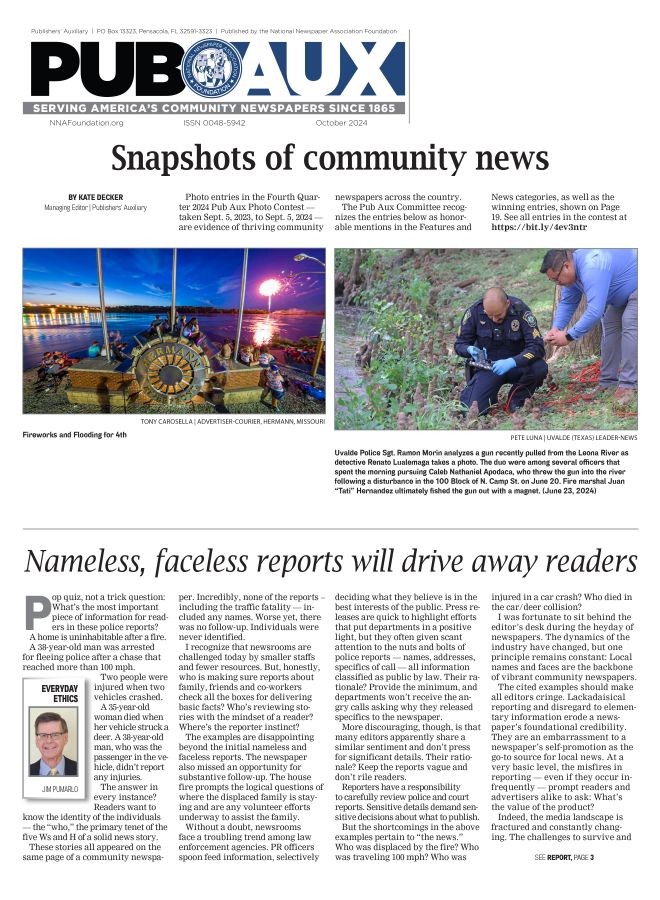Postal reform legislation is back on the slow track
May 1, 2015
WASHINGTON—National Newspaper Association leaders Matt Paxton, publisher of the News-Gazette in Lexington, VA, and Max Heath, NNA Postal Committee chair, joined NNA Chief Executive Officer Tonda Rush in April for a listening session with House Oversight and Government Reform Committee chair Jason Chaffetz, R-UT. Chaffetz assured NNA that he is proceeding with postal legislation but that it would not necessarily follow the form of the 113th Congress.
Meanwhile, the Senate Homeland Security and Governmental Affairs Committee has decided to proceed by holding roundtable discussions for senators only to consider how a new bill might be written. Chair Ron Johnson, R-WI, has taken the unusual step of inviting his ranking minority member, Sen. Thomas Carper, D-DE, to chair the roundtables, saying he believes Carper has the vision for the U.S. Postal Service’s future. A series of roundtables with postal stakeholders is planned for May.
In neither case do the committees appear to be inclined to pick up with the negotiated bill that mailers and labor unions presented to Congress last December. Mailers’ organizations have urged both House and Senate leadership to seize non-controversial provisions from the previous Congress and move ahead quickly, fearing that the more elements that emerge in new bills, the more opposition the bills tend to draw. No omnibus bills on postal reform have been filed by key policymakers in the 114th Congress.
Chaffetz told the NNA delegation that he did intend to move legislation but that he would be looking for more creative approaches than Congress has found so far. Among his favorite ideas is to move toward five-day mail, but to require Saturday delivery on weekends that include a federal Monday holiday.
Paxton discussed disruption in mail service in his Lexington office, particularly with First-Class Mail. He said NNA is proposing that USPS implement separate measurements for on-time delivery of rural mail. Because current measurement systems are heavily weighted toward urban areas, NNA is concerned that the severity of mail disruption in more rural areas is not being detected by USPS or policymakers. Chaffetz said he understood the concern and asked his staff to pursue solutions.







